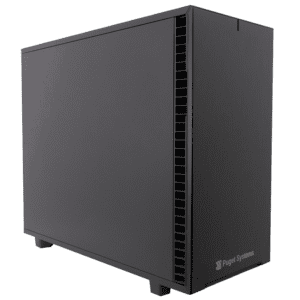Modern high-end laptops can be treated as desktop system replacements so it’s expected that people will want to try to do some serious computing on them. Doing GPU accelerated computing on a laptop is possible and performance can be surprisingly good with a high-end NVIDIA GPU. [I’m looking at GTX 980m and 970m ]. However, first you have to get it to work! Optimus technology can present serious problems to someone who wants to run a Linux based CUDA laptop computing platform. Read on to see what worked.
Install CUDA and PGI Accelerator with OpenACC
I’m going to walk you through a basic install and configuration for a development system to do CUDA and OpenACC GPU programming. This is not a detailed howto but if you have some linux admin skills it will be a reasonable guide to get you started. We’ll do a basic NVIDIA GPU programming setup including CentOS 6.5, CUDA development environment and a PGI compiler setup with OpenACC. The most interesting part may be the OpenACC setup. OpenACC is a relatively new option for GPU programming and allows for a directive (pragma) based coding model.
GTC 2014 Brief Recap — content links
I had the pleasure of attending the NVIDIA Graphics Technology Conference ( GTC ) last week. Wonderful conference! If you have any doubts about the quality of the conference you are in luck. They have most of the content on-line, you can check it out yourself …
Compute Performance: Ivy Bridge-E vs. Haswell
How does the Ivy Bridge-E Core i7-4960X (Extreme edition) do against the Haswell Core i7-4770 running the Linpack benchmark? The Ivy Bridge-E 4960X is a great processor — 6 cores, 4GHz max turbo clock, 4 memory channels, 40 PCIe lanes, big price tag … However, the humble Haswell 4770 has it’s AVX2 and FMA3 secret weapons which are really effective on linear/matrix algebra type of numerical computing problems. …
The Peak Mini NVIDIA Tesla edition –preview
The NVIDIA Tesla accelerator is a well established work-horse for many useful and important High Performance Computing applications and we are happy to be able to provide Tesla acceleration for our “Peak” systems. The developer ecosystem around CUDA is well established, however, at Puget Systems we believe there is new round of developer interest on the horizon that will be catalyzed by the soon to be released 6.x series of the CUDA platform, advances with openACC, new libraries, new hardware, and perhaps significantly, NVIDIA’s acquisition of The Portland Group and their excellent compilers and tools for working with Tesla. So, I’ve loaded up a Peak mini with a Tesla K40 and I’m ready to give Tesla programming a fresh look.
Xeon Phi Developers Starter Kit
If you are thinking about getting a system for doing development work targeting the Intel Xeon Phi and you hesitated because of the additional cost of the Intel developer tools you would need then, you should get a system with the “Xeon Phi developers starter kit”. The savings on the Intel tools can completely offset the cost of the base system. It’s a serious bargain!
Using RHEL / CentOS 6.5 with the Intel Xeon Phi
Can you use the new RHEL/CentOS 6.5 release with the Xeon Phi … yes! But, there is a gotcha that we will need to work around. Read on.
Taking a computer (not laptop) on a plane
Can you fly with a computer (not laptop) in your carry-on bag. Sure! With some restrictions of course…
Performance of Xeon Phi on PCIe X8
Will the Xeon Phi work in an X8 mode slot? If so, will the performance degrade? Yes and yes!
Why Xeon Phi on Windows is Important
Windows users don’t get a lot of love from the HPC community but, hey!, they have serious compute heavy programs to run too. … and they are desperate for performance!
